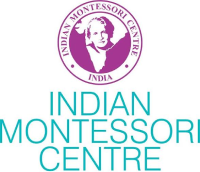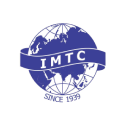FAQ'S
- Home
- FAQ'S
MONTESSORI METHOD OF EDUCATION
One reason is that it brings about development in every sense of the word - truly an enveloping development. There is development of the body - physical development - as the child performs that involve movements of the fingers and large movements of the body. There is spiritual development as the child seeks for knowledge and is encouraged in this seeking - he develops the spirit of enquiry.
There is intellectual development as the child gains the knowledge he has sought. There is linguistic development as the child speaks freely, is listened to,. Thus he learns to express himself.
There is emotional development as the child feels the fullness of positive emotions at work completed and ends achieved. There is social development as children show consideration for each other as they share the material. The child develops the ability to concentrate for longer and longer periods. Through it all, the child is growing as an individual, not as an insignificant member of a group.
The Montessori method gives the child "inner work" and "outer work," both of which he needs in his efforts to grow and develop into an adult. It develops his will, his intellect, and his motor control, separately and together. His senses become efficient servants of the intelligence apart from supplying all experiences. These experiences are the raw materials for shaping his personality.
He has opportunity for intelligence to focus on the use of his senses. It gives him a strong foundation in Mathematics and Language. It gives him the ability to work and helps him to be a responsible person. The real sense of the term ‘social interaction’ is seen in a Montessori House of children. Obviously the child is happy.
The function of education according to Dr. Montessori is, to render assistance according to man in course of fundamental development in order to work at his self formation in obedience to the laws that govern development. For rendering this assistance effectively a special preparation is necessary. This preparation is not only physical but also spiritual. The adult world has to bring about both these preparations an then render the needed assistance. Dr. Montessori laid greater emphasis on the spiritual preparation of the adult.
After having trained and prepared oneself the 'adult' as he or she is called in a 'Montessori House of Children' should prepare the following:
- Prepare the environment with proper conditions.
- Prepare the means of development. These are the very tools with which the child work.
- The adult should establish positive and constructive contacts between the child and the means of development.
- Should ensure that the child enjoys freedom with regard to choosing an activity and repeating it as many times as he wants.
The adult in the House of Children is one of the agents in the process of education. The other two being the prepared environment along with the community of children, secondly the means of development. The adult herself is in the background as an assistant. She approaches the child either through the environment or through out the means of development. As far as possible the indirect approach is resorted to, because, it doesn't dampen the child's enthusiasm and spontaneous interest and also the thrill of doing and knowing things by himself.
The aim of the the Montessori Method of education is to help the child become a self sufficient and an independent master of himself. All activities in the House of children are directed towards this goal. In fact the very aim of life itself is this independence and education is a means towards this goal.
In traditional school this aim is lost sight of. Individuality is crushed under mass education system. The teacher dominates the show. No freedom of choice or freedom to repeat the activities. The child has no freedom of movement either, children are crammed in a small enclosure and are made to do what the teacher dictates. The Child has to do what the teacher tells him to do and this cannot but curb his development.
Montessori practice is always up-to-date and dynamic because observation and the meeting of needs is continual and specific for each child. When physical, mental, spiritual, and emotional needs are met, children glow with excitement and a drive to work with enthusiasm, to learn, and to create. They exhibit a desire to teach, help, and care for others and for their environment.
The high level of academic achievement so common in Montessori schools is a natural outcome of experience in such a supportive environment. The Montessori method of education is a model which serves the needs of children of all levels of mental and physical ability. The children live and learn in a mixed-age group which is very much like the society they will live in with the adults.
Today Montessori teacher training centers and schools exist on all continents. There are Montessori parenting classes, infant communities, "children's houses" (for age 3-6), and classes for children up to age eighteen in public and private schools. Montessori assists in the work with gifted and talented children. It also helps in programmes for children with developmental disabilities of all kinds. Many parents use Dr. Montessori's discoveries to raise/educate their children at home.
RECOGNITION OF SCHOOLS
According to Dr. Montessori's vision, Montessori House of Children are places where children live for a part of the day, performing and managing all that are done at home. They would have many things to learn like writing, reading, drawing and the like.
Bonafide Montessori work involves mainly three things - the space, the educational materials and the Montessori method. To ensure that all these are available there has to be a trained adult, supremely committed and dedicated. Continuous alertness is needed in offering the appropriate service to every child.
Many schools exist that call themselves Montessori but do not follow the Montessori principles or philosophy. Parents who approach such schools have no way of judging whether their children will learn in a true Montessori environment with the help of qualified Montessori adults.
To combat this situation, as a very small measure, the Indian Montessori Centre is awarding recognition to schools that follow the Montessori method of education to help children. It was decided that the persons in charge of the Montessori houses of children could make the assessment themselves. A model of the various requirements of a genuine Montessori house of children was prepared.
To find out the details of working, a self-appraisal form was drafted which needs to be filled in by the persons concerned. After receiving the self-appraisal forms, the governing body decides on the Certificate of Recognition and also the time span for which it will be valid. The reports are scrutinized by a committee of experienced Montessorians.
Certificates of Recognition have been awarded to all the recognized schools. The Certificates have been awarded along with suggestions for improved work conditions. The Indian Montessori Centre believes that the Certificate of Recognition will not make the educational institutions think that they have reached the acme of perfection. The Indian Montessori Centre hopes that this will give the schools a boost of encouragement which will, eventually, reach the children who will become healthy in their psyche and physique.



